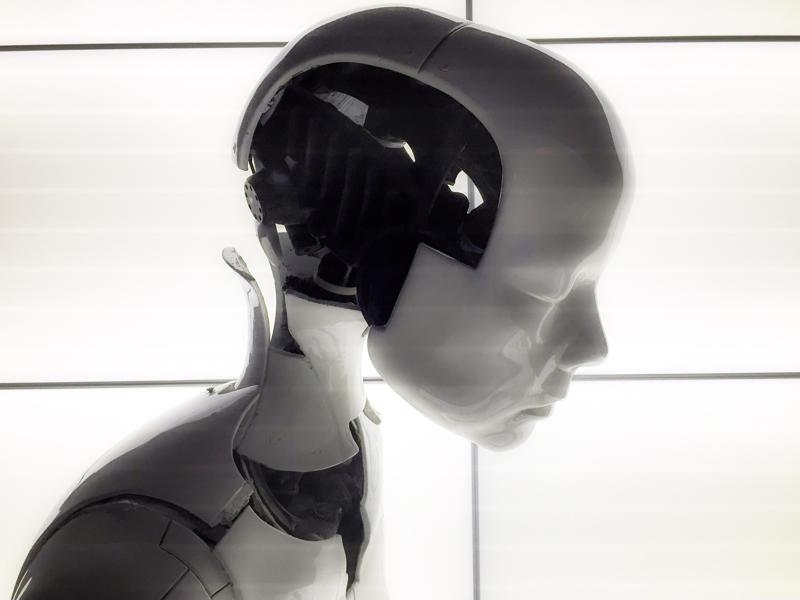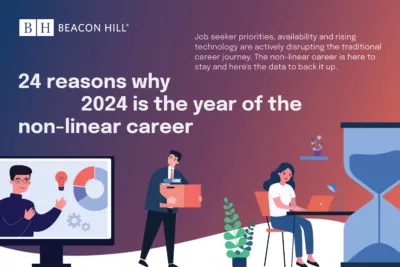
5 hiring trends to watch in 2018
With the changing of the calendar, it's time to look to the future. What new and exciting trends can we expect in 2018? Keep reading to find out:
1. More remote employees
As the new year begins, it's fun to think about where we were a year ago, especially in terms of technology. These days, it seems like there's a new breakthrough in collaborative technologies every month, and they make it easier for employees to complete their duties from anywhere.
Capterra reported that remote work will likely continue to be a big trend in 2018. In the past, working from home was stigmatized because employers assumed employees would be less productive if they weren't surrounded by a corporate environment. But in today's always-on world, employees are more used to working from anywhere - whether that's at home on the couch, an airport terminal or a bustling cafe.
During the hiring process, managers should consider including some questions about self-motivation and remote work experience.
2. Competition with automation
No, 2018 won't likely be the year the robots rise up to take all of our jobs, but automation may force some employees to learn new skills. In the business world, automation can complete a number of complex tasks faster than humans could - but robots can't understand data the way humans can. So while an algorithm may be able to complete routine tasks, it still needs a human to make sense of its work.
Employment screening expert Josh Millet, writing a guest article for Forbes, explained that hiring managers should look for ways to future proof their employees. Millet suggested looking for employees who are ready to learn new skills and helping them pivot away from easily automated tasks. Investing in employees can generate company loyalty and potentially reduce costly turnover.

3. A larger gig economy
Freelancers and independent contractors have been a part of the hiring landscape for a long time, but now a higher percentage of workers may turn to independent work as the gig economy goes into overdrive. In fact, MBO Partners predicted that 60 percent of workers will be part of the gig economy by 2027.
And the expansion of contract work is not solely on the job seeker side. "We anticipate IT projects, and the need for quality candidates to complete those projects, will only increase," says Katie Hackney, Division Director for Beacon Hill's Technologies Division in Columbus. "Once a manager decides on a candidate they feel can do the job, they should move quickly to avoid losing out on talent. Sometimes a candidate can have two or three opportunities and those managers or companies that do not make decisions could find themselves missing out."
Hiring freelancers is a slightly different process compared to seeking out full-time employees. Human resources managers should look for ways to streamline the vetting process and develop training materials specific for contract workers. Likewise, HR should work with the IT department to create security protocols for contractors who need to leave the premises with company data.
4. Emphasis on candidate experience
In 2018, HR managers should take a close look at their hiring processes from the perspective of an applicant. Making it difficult to apply for a job, never getting back to applicants and creating hoops for job seekers to jump through aren't viable recruiting tactics. As the nation's economy continues to improve - and it shows few signs of slowing down - job seekers will have more power in hiring negotiations.
If your process is too confusing, applicants may simply walk away - and straight into the arms of your competitors. Focus on creating a palatable candidate experience, and you may see better hiring results.
5. AI and HR working together
Powerful artificial intelligence solutions are already helping hiring managers make better decisions, and this trend is likely to continue into the future. Workplace consultant Georgene Huang, writing in Forbes, explained that AI can reduce unconscious bias during hiring. Human managers may want to trust their gut and make a decision, unintentionally giving in to a personal bias. AI works with only objective information, and its help could reduce discrimination in the workplace.
To learn how professional recruiters can help you kick start your 2018 hiring, visit bhsg.com today.
This content is brought to you by the Marketing Team at Beacon Hill Staffing Group.
 Back to Top
Back to Top

